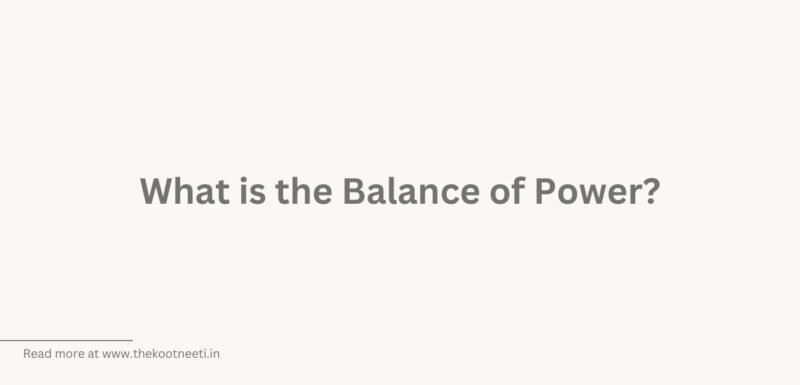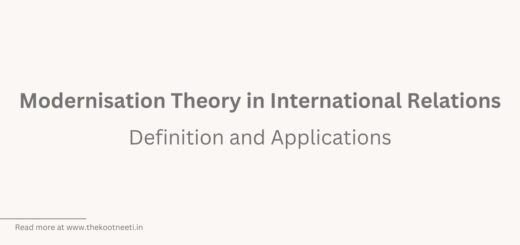What is the Balance of Power?

The balance of power is a concept in international relations that refers to the distribution of power among different states or actors in the international system. It is often used to describe the distribution of military, economic, and political power among nations and to assess the relative strength of different countries or alliances.
In a system with a balance of power, no single country or alliance is able to dominate the others. This can help to prevent any one country from becoming too powerful and can promote stability and peace in the international system.
The balance of power can shift over time as countries gain or lose power, and states may use various strategies to try to maintain or alter the balance of power in their favor. These strategies may include building up military forces, forming alliances with other countries, and pursuing economic or diplomatic policies that enhance their relative power.
There are various theories about how the balance of power operates in the international system. Some argue that the balance of power is determined by objective factors, such as the size and strength of a country’s military or the size of its economy. Others argue that the balance of power is shaped by subjective factors, such as the perceptions and intentions of different states.
In practice, the balance of power is often difficult to quantify and can be influenced by a wide range of factors, including technological changes, economic developments, and the actions and policies of individual states.
Balance of Power and India
In the context of India’s foreign policy, the balance of power refers to the relative strength of India compared to other countries in the region and the ways in which India seeks to maintain or alter this balance in its favor.
India has historically sought to maintain a balance of power in South Asia that is favorable to its own interests. This has included efforts to build up its own military capabilities and to form alliances with other countries in the region. For example, India has traditionally sought to counter the influence of China in the region and has formed strategic partnerships with countries such as Japan, the United States, and Australia in order to balance against China’s growing power.
India has also sought to maintain a balance of power within South Asia by engaging with its neighbors and working to resolve conflicts and disputes. This has included efforts to promote regional cooperation and to mediate in conflicts such as the Kashmir dispute between India and Pakistan.
Overall, the balance of power has been an important factor in India’s foreign policy and has shaped the country’s relationships with other countries in the region.


















